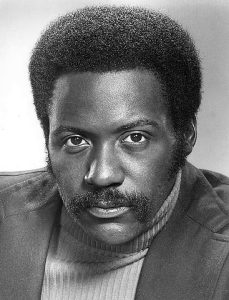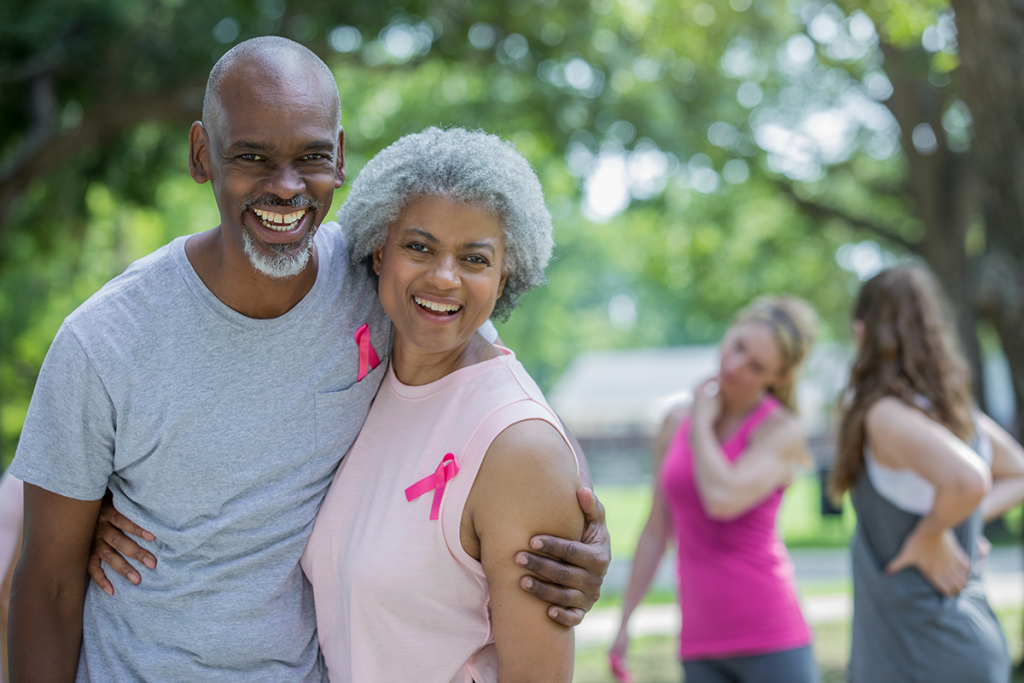For Breast Cancer Awareness Month, we are publishing a series of articles about the impact of this disease on men and women.
As the titular character of the movie “Shaft,” Richard Roundtree was the epitome of rugged, black masculinity. In the pantheon of cinema tough guys, he was entrenched “as the cat that won’t cop out when there’s danger all about,” as the movie’s theme song attests.
So, when Roundtree was diagnosed with breast cancer years later, it was a shocking development. First, how did the man who played a character that was the “bastion of badassery” develop a disease associated with women? Second, can men really develop “breast” cancer?

Though rare, men can still contract breast cancer, especially men of color in the United States — movie star or not.
While white men represent an overwhelming majority of breast cancer cases in the U.S., Black men still have higher rates of breast cancer in comparison, according to a comprehensive study conducted between 2010 and 2016.
More alarming is that, when receiving similar treatment, black men between 18-64 were 76 percent more likely to die from breast cancer than white men, according to another study. Contributing factors included poverty, differences in insurance, and quality of care.
As with all cancers, early diagnosis is the key to beating it.
Here’s How To Know If You Have Breast Cancer
The primary indicator of breast in men is the presence of a lump in the chest, which is often (but not always) painless. This was also how Roundtree discovered he had cancer.
The American Cancer Society (ACS) also lists the following as possible symptoms:
- Redness or scaling of the nipple or breast skin
- Nipple retraction (turning inward)
- Discharge from the nipple
- Skin dimpling or puckering
Risk Factors for Breast Cancer
Certain risk factors can make it more likely for men to contract breast cancer. Those include:
- Aging: Breast cancer risk heightens with age and is often found in men older than 50, according to the Centers for Disease Control and Prevention (CDC).
- Genetic mutations: Defects in the genes responsible for tumor suppression can lead to increased breast cancer risk.
- Family history of breast cancer: As with other cancers, a man’s risk for breast cancer increases when a close relative has had it.
- Radiation exposure and Hormone therapy treatment: Men who have received radiation therapy or have undergone hormone therapy to treat prostate cancer are also at risk of contracting breast cancer.
- Klinefelter syndrome: Males with this rare genetic condition, where they have an extra X chromosome, are at risk. With this syndrome, the body makes more estrogen and produces less of the androgen hormones that develop and maintain male sex traits.
- Changes to the testicles: Injury, swelling, or surgery to remove the testicles can increase breast cancer risk, according to the CDC.
- Heavy drinking: Because heavy alcohol use impacts the liver, it can also lead to an increased risk of breast cancer, states the ACS.
- Liver disease: Cirrhosis of the liver can also lower androgen levels and raise estrogen levels in men, which increases their risk.
- Obesity: Men who are older and are overweight or obese are at greater risk than men of normal weight.
How to Combat Breast Cancer
For black men especially, early detection and annual doctor visits are key.
“This body of ours is an incredibly fine-tuned instrument, but people tend to take better care of their cars than they do their bodies,” Roundtree told the The Campaign for Black Male Achievement (CBMA). “I know a lot of men who won’t miss that 3,000-mile oil change, but just try getting them into a doctor’s office once a year.”
Another way to prevent breast or any other cancers is to eat right. Men are encouraged to eat whole, fiber-rich foods like fruits, vegetables, and beans. Fruits and vegetables that are less sweet are encouraged. Think cabbage, broccoli, berries, and greens.
Men are also encouraged to limit their alcohol intake, engage in physical activity, and maintain a healthy weight.
More than anything, men should go over their family history and remain proactive about protecting their health.
“Think about your kids,” Roundtree told ABC. “Sit down with your family and talk about history, about all this stuff because it can save your life. You got to be vigilant.”












